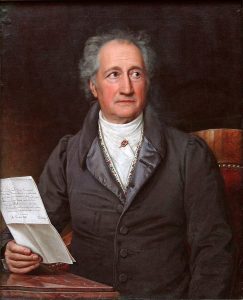This post, written by George Hodgson, originally appeared on the Creative Multilingualism blog on 11 January 2018. George Hodgson has been British Ambassador to Senegal and non-resident Ambassador to Cabo Verde and Guinea-Bissau since July 2015.
The first foreign language I really engaged with was Bengali. Most of the kids at my primary school in Tower Hamlets in East London were of Bangladeshi heritage. In the classroom, we sang Bengali songs. In the playground, we delighted in Bengali swear words. I’d be too embarrassed to own up to recalling the lyrics of a song about a frog, let alone the insults, but I will admit to still remembering how to count from one to ten.
At secondary school, I studied French, German and Latin up to GCSE. There was neither singing nor swearing. But we had great teachers, with a passion for languages and for sharing them – even with under-appreciative teenagers. I became more appreciative when, some years later, my rusty French was enough to strike up a conversation with an attractive French girl, now my wife.
As British Ambassador in Dakar, I speak more French on any given day than I do English. Without it, I just wouldn’t be as effective in my job. That, quite simply, is why language skills are a priority for the Foreign and Commonwealth Office (FCO). This blog, by my colleague Danny Pruce in Manila, offers a nice insight into studying Tagalog full-time at the FCO’s in-house language centre.

Here in Senegal, I’ve been impressed by the language skills of the young British volunteers that I’ve met, working with great organisations like the International Citizenship Service or Project Trust in local communities, and living with host families. Many of them learn Wolof: it’s far more widely spoken than French, and Senegal’s real lingua franca.
Equally impressive are the language skills of ordinary Senegalese people. For a majority in Senegal, multilingualism is a way of life. The same is not quite true in the United Kingdom.
That said, there are of course millions of people in the UK who are multilingual speakers of recognised minority languages like Welsh or Gaelic, or of languages that have come to the UK more recently, like Polish or Punjabi … or indeed Bengali. There are over a million bilingual pupils at school in Britain.
The British Council’s recent Languages for the future paper is well worth a read. It argues that ‘in a new era of cooperation with Europe and with the rest of the world, investment in upgrading the UK’s ability to understand and engage with people internationally is critical’. I couldn’t agree more.
Part of that investment is, of course, about supporting language learning in schools, universities and beyond. But it’s also about encouraging and enabling people to make the most of the linguistic talents that we already enjoy as a country. And looking at how schemes which aren’t ostensibly about languages – like the International Citizenship Service – can contribute.







